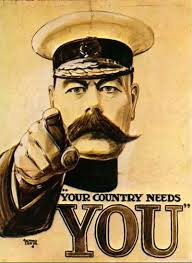Arthur T. Collinson (b. 1893): War, Memory & Life Writing
Arthur T. Collinson, a pacifist, went to war in order to provide money for his sick wife and two young daughters. Collinson was unemployed and largely blacklisted at the time. A desire for basic working rights, safe working conditions and fair pay was enough to demonise a thoroughly wholesome man. Seemingly, subscription was the only option, “Some ten days later I got my call-up and I had to report to an artillery barracks in a road off Barnsbury, London, N. Now I was in a quandary, for I had to consider not myself and my ideas, but the fact that I had a wife and 2 little girls” (34/35).

This may all seem a bit contradictory but Collinson was opposed to war. He had a great respect for his average fellow man. He knew that people were not just cannon-fodder or sacrificial:
“I sat by the side of the bed all through the night and as my wife slept, I wept and wept. What madness is war and when will mankind ever learn to express national or international differences in other ways than killing or maiming or blinding their fellows” (33-34).
As usual, Collinson’s views were not shared by everybody, namely his neighbour:
“Ordinarily, he was a quiet, sober and rational man but as we saw the airship burning and falling to the ground, he became a frenzied maniac and began jumping up and down, screaming, “Roast you bastards, roast, roast, roast.” This seemed to be more terrible than the sight we were witnessing when 33 human beings were actually being roasted, albeit they were Germans and on a diabolical mission of destruction of fellow humans” (33).
The gassings. The artillery shells. The death of friends who stood next to you. The Great War was proving too much for Arthur T. Collinson. Plus, with Collinson being exposed to violence from a very early age, his go at desertion (unsuccessful) was always on the cards:
“I enquired one evening of the sergeant when I would be likely to appear to be charged. He told me that Major Ellis was in constant touch with the hospital, and the base both of were stressing the desertion part of my crime. He gave it as his opinion that I would eventually be court marshalled” (62).
The fact that Collinson was not patriotic also fuelled his desire to get back home. Yes, he was willing to help his fellow men, but in a more peaceful, democratic way.
Thankfully then, after much toing and froing, Arthur T. Collinson was allowed to return home to be with his loved ones:
“My discharge was dated January 30th 1919” (66). And with more pay than he was owed, “with a month’s pay and allowance and thanks to the strange arithmetic at the Army Pay Office, a credit balance, when I was to my calculations pretty deep in debt” (66).
Collinson returned to a battle-scarred capital city. Reminders of the atrocities he had tried to escape were around every corner.

Bibliography:
‘Arthur T. Collinson’, in John Burnett, David Mayall and David Vincent eds The Autobiography of the Working Class: An Annotated, Critical Bibliography Brighton: Harvester, 1984, Vol.3, no. 30.
Arthur T. Collinson, ‘One Way Only: An autobiography of an Old-time Trade Unionist’ in Burnett Archive of Working Class Autobiography, University of Brunel Library, Special Collection, 3:30

Leave a Reply